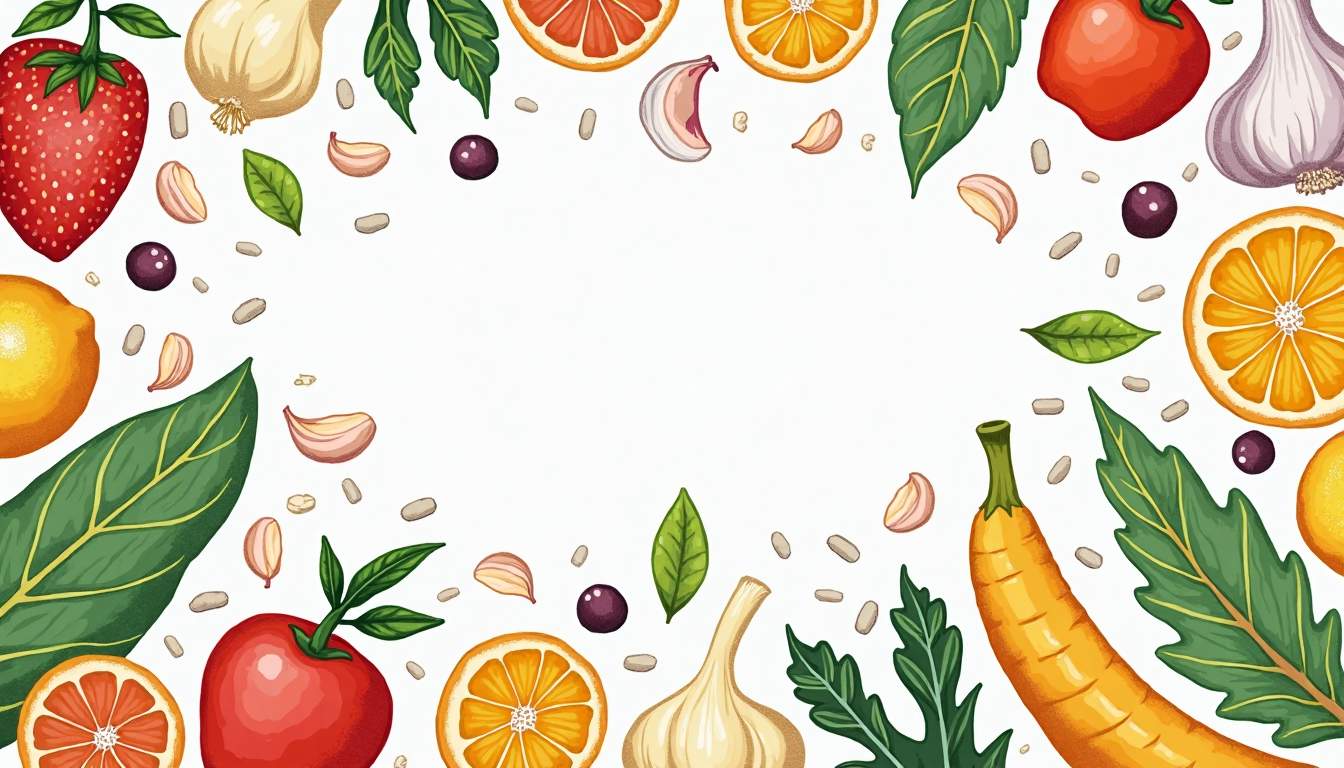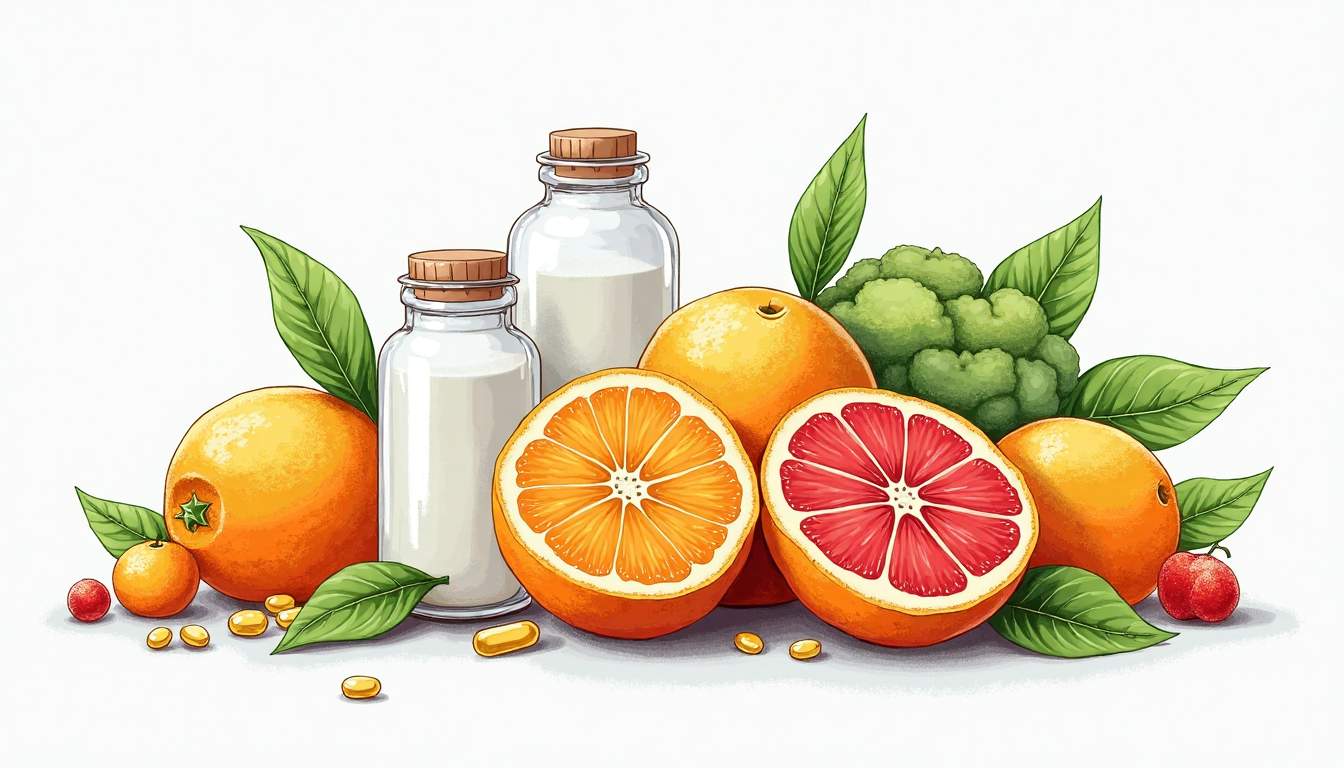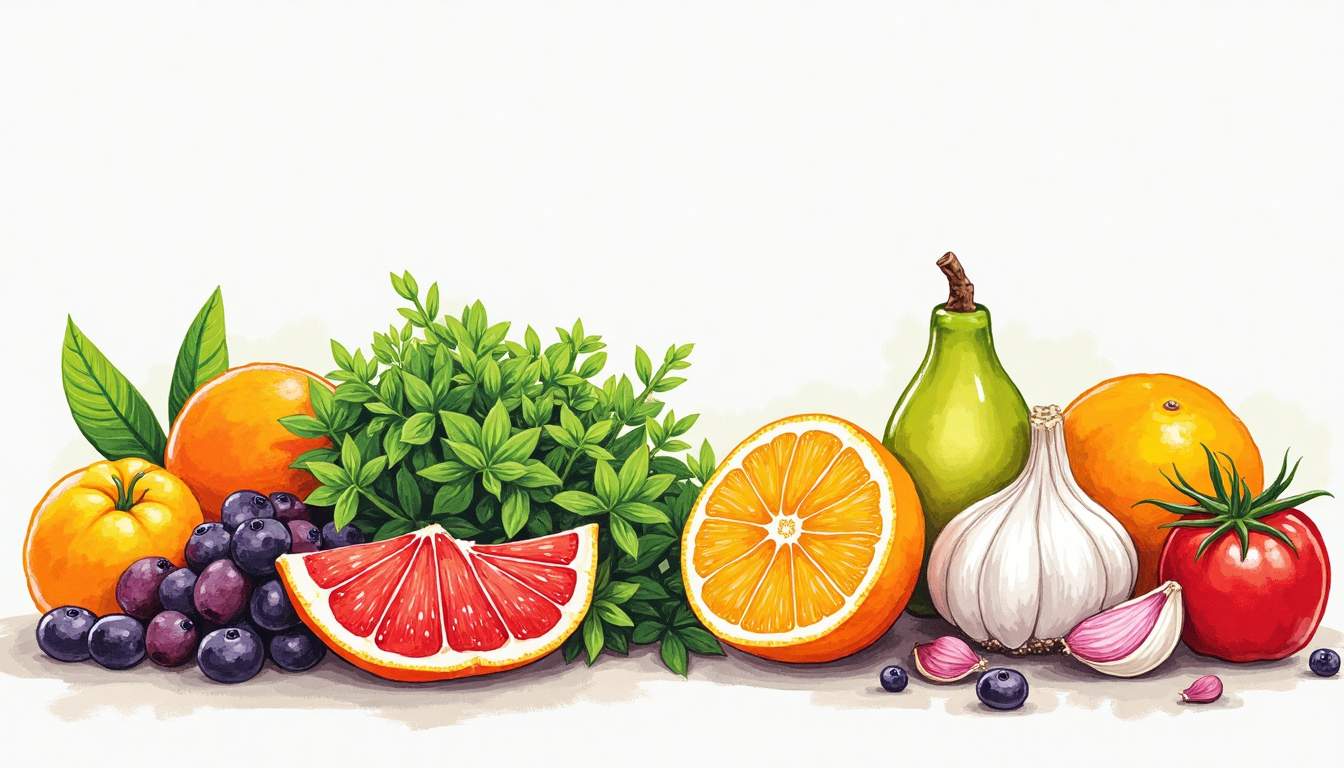Certain vitamins can help reduce the frequency, severity, and duration of the common cold. Key nutrients like Vitamin C, D, and E support immune function, protect cells from damage, and enhance the body’s natural defenses—making them essential during cold season and beyond.
The common cold is a viral infection that can disrupt daily life, causing discomfort and inconvenience. While there is no cure for the cold, certain vitamins can bolster the immune system and help the body fend off infections. Understanding which vitamins are most effective can empower individuals to enhance their health and reduce the frequency and severity of colds.
Understanding Vitamin Benefits for Immune Health
Vitamins play a crucial role in supporting the immune system, aiding in the body’s ability to fight off infections. Each vitamin contributes uniquely to immune function, and a deficiency in any of these essential nutrients can leave the body vulnerable to illness. By ensuring adequate intake of specific vitamins, individuals can enhance their immune response and overall health.

How Vitamins Support Immune Function
Vitamins function as co-factors in numerous biochemical reactions within the body. For instance, Vitamin A is essential for maintaining the integrity of mucosal surfaces, which serve as barriers against pathogens. Vitamin C is known for its antioxidant properties, helping to protect immune cells from damage. Meanwhile, B vitamins are involved in energy production and the synthesis of immune cells.
Furthermore, vitamins can influence the production of antibodies and cytokines, which are critical for orchestrating the immune response. By ensuring that the body has sufficient levels of these vitamins, individuals can improve their resilience against infections, including the common cold. In addition to these well-known vitamins, Vitamin E also plays a significant role in immune function by enhancing the activity of immune cells and protecting them from oxidative stress. This vitamin acts as a powerful antioxidant, supporting the overall health of the immune system and helping to maintain cellular integrity.
Identifying Vitamin Deficiencies During Cold Season
Cold season often coincides with shorter days and reduced sunlight exposure, which can lead to deficiencies in key vitamins. For example, Vitamin D, which is synthesized through sunlight exposure, may be lacking during winter months. Symptoms of vitamin deficiencies can include fatigue, frequent illness, and slower recovery times from infections.
Regular health check-ups and blood tests can help identify deficiencies. Additionally, being aware of dietary habits can provide insights into potential gaps in nutrient intake. For instance, a diet low in fruits and vegetables may indicate insufficient Vitamin C or other essential nutrients. Incorporating a variety of colorful fruits and vegetables into daily meals can significantly boost vitamin intake. Foods rich in Vitamin D, such as fatty fish, fortified dairy products, and egg yolks, should also be prioritized, especially during the colder months when natural sunlight is scarce. Moreover, supplementation can be a practical approach for those unable to meet their nutritional needs through diet alone, but it is always advisable to consult with a healthcare professional before starting any new supplement regimen.
Essential Vitamins for Cold Prevention and Recovery
Several vitamins have been extensively studied for their role in preventing colds and aiding recovery. Incorporating these vitamins into one’s diet can be a proactive approach to maintaining health during cold season. By understanding the specific functions of these vitamins, individuals can make informed dietary choices that bolster their immune systems and enhance overall well-being.
Vitamin C: The Immune System Powerhouse
Vitamin C is perhaps the most well-known vitamin for immune support. It is a powerful antioxidant that helps protect cells from damage and supports various cellular functions of both the innate and adaptive immune system. Research has shown that regular intake of Vitamin C can reduce the duration and severity of colds. Moreover, this vitamin plays a crucial role in the synthesis of collagen, which is vital for maintaining healthy skin and connective tissues, further aiding the body's defense mechanisms.
Foods rich in Vitamin C include citrus fruits, strawberries, bell peppers, and broccoli. For those who struggle to meet their daily requirements through diet alone, Vitamin C supplements are widely available and can be an effective alternative. Interestingly, some studies suggest that the timing of Vitamin C intake may also influence its effectiveness, with benefits observed when consumed regularly rather than just at the onset of symptoms. This highlights the importance of a consistent dietary approach to immune health.
Vitamin D: The Sunshine Vitamin's Role in Immunity
Vitamin D is another critical nutrient for immune health. It modulates the immune response and has been linked to a reduced risk of respiratory infections. Many individuals experience lower levels of Vitamin D during the colder months due to decreased sunlight exposure, making supplementation particularly important during this time. Furthermore, Vitamin D is known to enhance the pathogen-fighting effects of monocytes and macrophages—white blood cells that are essential for immune defense—thereby playing a pivotal role in the body’s ability to fend off infections.
Sources of Vitamin D include fatty fish, fortified dairy products, and egg yolks. However, for many, especially those living in northern climates, obtaining sufficient Vitamin D through food alone may be challenging, highlighting the importance of considering supplements. Additionally, some research indicates that Vitamin D may also have a protective effect against chronic diseases, making it a vital nutrient not just for cold prevention but for overall health maintenance. Regular monitoring of Vitamin D levels, especially during winter months, can be a beneficial practice for those looking to optimize their immune function.
Incorporating Immune-Boosting Vitamins Into Your Daily Routine
Integrating vitamins into a daily routine can be straightforward and beneficial. Whether through diet or supplementation, ensuring adequate intake of immune-boosting vitamins can help support overall health and resilience against colds. Vitamins such as A, C, D, and E, along with minerals like zinc and selenium, play crucial roles in maintaining a robust immune system. These nutrients not only help in the production of immune cells but also enhance the body’s ability to respond to pathogens effectively.

Supplements: Making the Right Choice
When considering vitamin supplements, it is essential to choose high-quality products. Look for supplements that have been tested for purity and potency. Consulting with a healthcare provider can also help determine the right dosage and type of supplement based on individual health needs and dietary restrictions. Additionally, it is crucial to remember that supplements should complement a balanced diet rather than replace it. Whole foods provide a range of nutrients that work synergistically to promote health, making them an indispensable part of any wellness strategy.
Moreover, the form of the supplement can also impact its effectiveness. For instance, some vitamins are better absorbed in their natural form found in food, while others may be more effective in synthetic forms. Understanding these differences can help consumers make informed decisions about their vitamin intake. Additionally, timing can play a role; certain vitamins are best taken with meals to enhance absorption, while others may be more effective on an empty stomach. Being mindful of these factors can optimize the benefits of supplementation.
Creating a Year-Round Vitamin Strategy for Optimal Health
Developing a year-round vitamin strategy can help maintain optimal health and reduce the likelihood of colds. This strategy should include a balanced diet rich in fruits, vegetables, whole grains, and lean proteins, alongside regular physical activity and adequate hydration. Incorporating a variety of colorful fruits and vegetables can ensure a broad spectrum of vitamins and antioxidants, which are essential for immune health. Foods like citrus fruits, bell peppers, and leafy greens are not only delicious but also packed with nutrients that can help fend off illness.
Seasonal changes can affect dietary needs, so it may be beneficial to adjust vitamin intake based on the time of year. For example, increasing Vitamin D intake during winter months or focusing on Vitamin C-rich foods during peak cold season can be advantageous. Regular health check-ups to monitor vitamin levels can also inform dietary adjustments and supplementation needs. Additionally, being aware of local seasonal produce can inspire creativity in meal planning, allowing individuals to enjoy fresh, nutrient-dense foods that align with their health goals. Engaging in community-supported agriculture (CSA) programs can also provide access to seasonal fruits and vegetables, making it easier to incorporate these essential nutrients into daily meals.
While no single vitamin can prevent colds, a combination of essential vitamins can significantly enhance immune function and overall health. By understanding the benefits of vitamins, identifying potential deficiencies, and incorporating these nutrients into daily routines, individuals can better prepare their bodies to fight off infections and maintain wellness throughout the year. Staying informed about the latest research on vitamins and immune health can also empower individuals to make proactive choices that support their well-being, ensuring they are equipped to thrive in every season.
Strengthen Your Immune System with Immuno Boost Vit C Complex
Vitamin C is one of the most important nutrients for immune support—and a powerful ally during cold season. Whether you’re aiming to prevent illness or recover faster, consistent daily intake can make a meaningful difference.
Immuno Boost Vit C Complex delivers a potent blend of vitamin C and bioflavonoids, designed to enhance absorption and support immune health all year round.
→ Support your immune system daily with Immuno Boost Vit C Complex.

Share:
Best Foods High in Vitamin C for Immunity and Overall Health
Signs of Vitamin A, D, E, and K Deficiency and How to Recognise Them Early